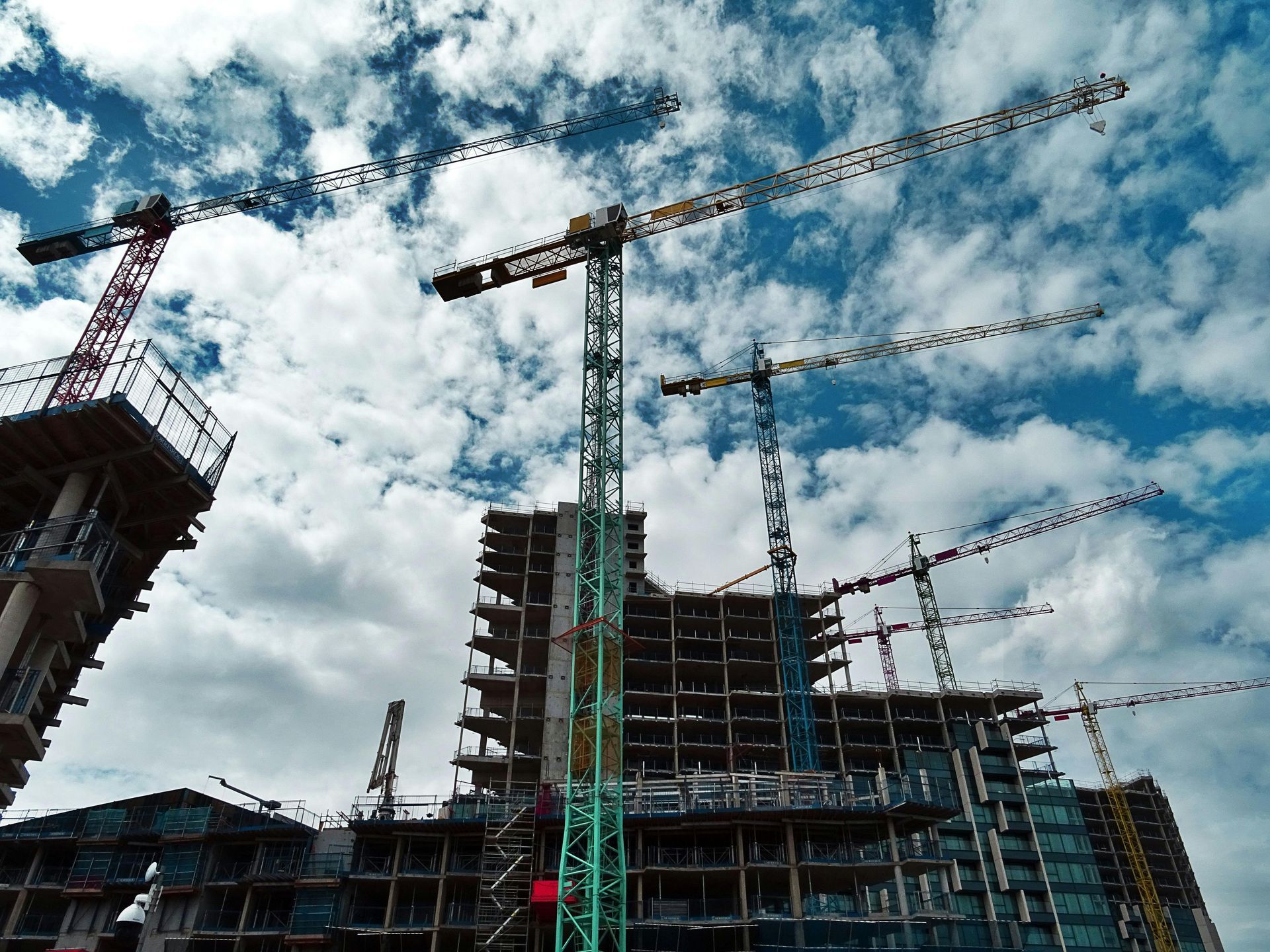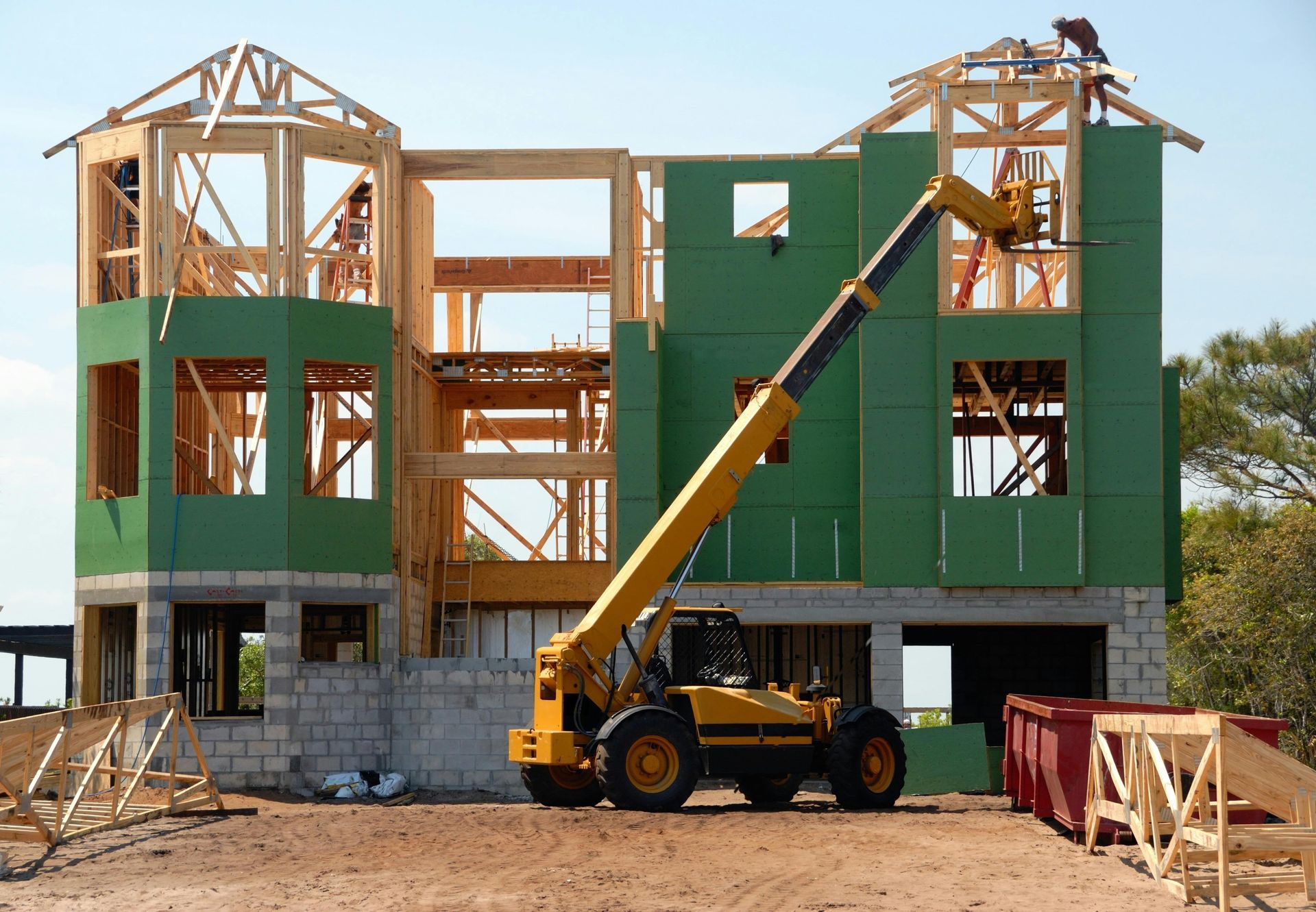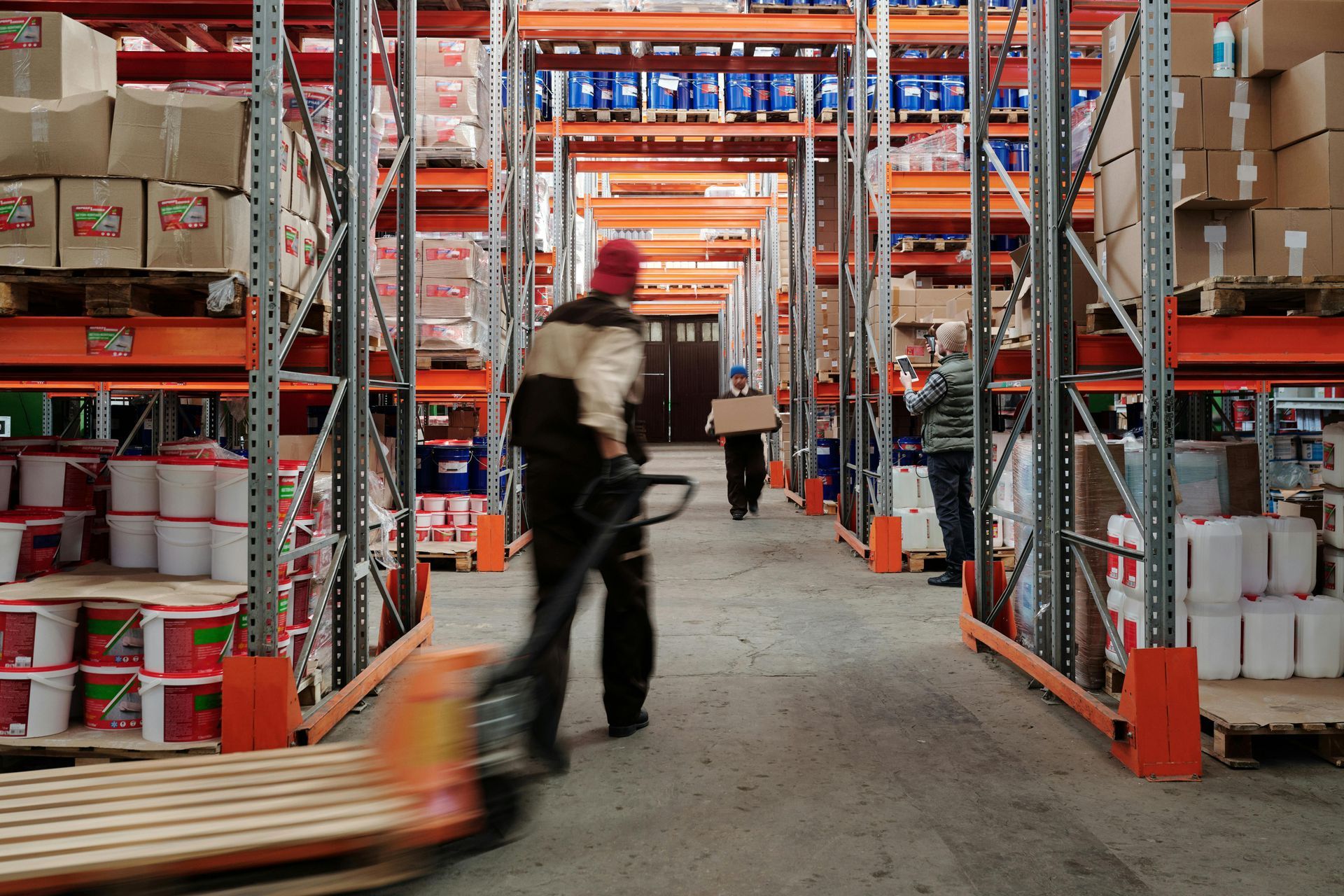The Role of Technology in Modern Logistics: How Innovation is Shaping the Future
Logistics and supply chain management have been the backbone of global trade for centuries. From ancient trading routes to modern shipping lanes, the efficiency of how goods move across the world has a direct impact on business success. However, in the past decade, the logistics industry has undergone a technological transformation like never before. New technologies are changing the way goods are transported, stored, and delivered, ushering in a new era of efficiency, speed, and transparency.
Companies that embrace these technological advancements are reaping the rewards through reduced costs, faster delivery times, and more resilient supply chains. In this article, we’ll explore the cutting-edge technologies shaping the future of logistics and why embracing them is essential for staying competitive in today’s market.
1. Real-Time Tracking for Greater Transparency and Control
One of the most significant advancements in logistics is the rise of real-time tracking. Companies can now monitor their shipments from the moment they leave the warehouse to their final destination, providing unprecedented visibility across the entire supply chain. This technological leap has not only increased transparency but also given businesses the ability to make rapid adjustments in response to disruptions or delays.
Real-time tracking is powered by GPS technology and IoT (Internet of Things) devices, which enable businesses to pinpoint the exact location of their shipments at any given time. IoT devices can also monitor environmental conditions, such as temperature or humidity, to ensure that sensitive products are transported safely.
Benefits of Real-Time Tracking:
- Increased Efficiency: Businesses can monitor the exact location of goods, allowing them to adjust schedules or reroute shipments as needed.
- Improved Customer Satisfaction: Real-time updates give customers accurate delivery windows, improving communication and trust.
- Proactive Problem Solving: With real-time data, logistics teams can identify potential issues before they escalate, reducing the impact of delays.
The future of real-time tracking continues to evolve, with more sophisticated tracking systems on the horizon. These systems will integrate predictive analytics and AI, enabling logistics teams to not only track shipments but also forecast potential disruptions before they happen.
2. Artificial Intelligence (AI) and Machine Learning (ML): Enhancing Efficiency
Artificial Intelligence (AI) and Machine Learning (ML) are revolutionizing logistics by improving decision-making processes, increasing operational efficiency, and reducing costs. These technologies are particularly valuable in optimizing route planning, predicting demand fluctuations, and automating repetitive tasks.
AI-powered route optimization systems analyze vast amounts of data, such as traffic patterns, weather conditions, fuel consumption, and delivery times, to determine the most efficient routes for shipments. By optimizing delivery routes in real-time, AI can reduce transportation costs, shorten delivery times, and minimize environmental impact.
Machine learning, on the other hand, uses historical data to improve forecasting accuracy. For example, ML algorithms can predict when a vehicle is likely to break down based on past performance, allowing businesses to schedule maintenance before a problem arises.
Key AI Applications in Logistics:
- Route Optimization: AI-driven route planning helps reduce fuel consumption and ensures that deliveries are made efficiently.
- Predictive Maintenance: By analyzing data from vehicle sensors, AI can predict mechanical failures before they happen, reducing downtime and repair costs.
- Demand Forecasting: Machine learning models can predict demand surges based on historical data, enabling businesses to adjust inventory levels proactively.
AI and ML are expected to play an even more significant role in logistics in the coming years, with advancements in autonomous vehicles, drones, and robotic automation that will further streamline operations.
3. The Automation Revolution: Warehousing and Robotics
Automation has been a game-changer for logistics, particularly in warehousing and order fulfillment. Automated warehouses use advanced robotics, Artificial Intelligence, and Machine Learning to streamline operations, reduce human error, and speed up processes. This results in faster order fulfillment, increased accuracy, and reduced labor costs.
In automated warehouses, robotic arms and Autonomous Mobile Robots (AMRs) are used to pick, pack, and transport goods, significantly reducing the need for manual labor. These robots can navigate large warehouses, retrieve items from shelves, and deliver them to packing stations for shipment.
Additionally, automated storage and retrieval systems (AS/RS) allow warehouses to store goods in high-density configurations, maximizing storage space and enabling faster retrieval of items. This is particularly useful for e-commerce companies that need to fulfill orders quickly and efficiently.
Benefits of Automation in Warehousing:
- Increased Speed: Automated warehouses can process orders faster than manual operations, improving order fulfillment times.
- Reduced Labor Costs: Automation minimizes the need for human intervention, reducing the overall cost of labor.
- Enhanced Accuracy: Robots and automated systems significantly reduce the risk of human error, ensuring that orders are picked and packed correctly.
The future of warehouse automation includes the use of collaborative robots (cobots), which work alongside human employees to enhance productivity and safety. These cobots can perform repetitive tasks, freeing up human workers to focus on more complex and strategic responsibilities.
4. Blockchain Technology: Enhancing Security and Trust
While blockchain is often associated with cryptocurrencies, its potential applications in logistics are vast. Blockchain technology provides an immutable, decentralized ledger that can track goods as they move through the supply chain, ensuring transparency and security.
Blockchain is especially valuable in industries where trust and traceability are critical, such as pharmaceuticals, food, and luxury goods. By using blockchain, businesses can ensure that products are not tampered with during transport and that all transactions are recorded transparently.
Smart contracts, powered by blockchain, automate processes such as payments and customs clearances, reducing paperwork and speeding up cross-border shipments. These contracts execute automatically when predefined conditions are met, streamlining the entire logistics process.
Benefits of Blockchain in Logistics:
- Enhanced Security: Blockchain’s decentralized nature ensures that data cannot be altered, reducing the risk of fraud and tampering.
- Improved Transparency: Every transaction is recorded on the blockchain, providing full visibility into the movement of goods.
- Streamlined Processes: Smart contracts automate various logistical tasks, reducing delays and paperwork.
As the adoption of blockchain in logistics continues to grow, we can expect to see cross-industry collaboration that enhances transparency and trust across entire supply chains.
5. Autonomous Vehicles and Drones: The Future of Delivery
Autonomous vehicles and drones are set to transform the logistics industry, particularly in last-mile delivery—the final step in the delivery process. Self-driving trucks are already being tested for long-haul freight transport, and while full adoption is still years away, the potential for increased efficiency and reduced labor costs is significant.
Drones, meanwhile, offer a faster and more flexible solution for delivering lightweight packages directly to consumers’ doorsteps. This is especially useful in urban areas or remote locations where traditional delivery methods may be slower or more costly.
Several companies are already piloting drone delivery systems, and as regulatory frameworks evolve, we can expect to see drones become a common feature in the logistics landscape.
Benefits of Autonomous Delivery Systems:
- Faster Delivery: Drones and autonomous vehicles can deliver goods more quickly, especially in congested urban areas.
- Reduced Labor Costs: With autonomous vehicles, there’s no need for human drivers, which significantly reduces labor costs.
- Greater Flexibility: Drones can reach areas that may be inaccessible to traditional delivery vehicles, improving the efficiency of last-mile logistics.
While there are still challenges to overcome, such as regulatory hurdles and safety concerns, the potential benefits of autonomous delivery systems are too significant to ignore.
6. Data-Driven Logistics: The Power of Big Data
Big Data is transforming logistics by providing companies with valuable insights into their operations. From predicting demand to optimizing routes, data-driven decision-making is enabling businesses to operate more efficiently and cost-effectively.
Logistics providers collect data from various sources, including vehicle sensors, GPS systems, warehouse management platforms, and customer orders. This data is then analyzed using advanced analytics tools to uncover patterns and trends that can inform strategic decisions.
For example, data can be used to predict future demand based on historical trends, allowing businesses to adjust inventory levels and transportation schedules accordingly. Data analytics can also help identify inefficiencies in the supply chain, such as bottlenecks or underutilized resources, enabling companies to make targeted improvements.
Benefits of Big Data in Logistics:
- Improved Forecasting: Data analytics help businesses predict demand surges and adjust their logistics strategies accordingly.
- Optimized Resource Allocation: By analyzing data on vehicle usage, warehouse space, and delivery routes, logistics providers can allocate resources more efficiently.
- Enhanced Customer Satisfaction: With better data, businesses can provide more accurate delivery estimates, improving the customer experience.
As more companies embrace the power of data, the logistics industry will continue to evolve, becoming more efficient, resilient, and responsive to market demands.
Conclusion: Technology is Shaping the Future of Logistics
The logistics industry is at the forefront of technological innovation. From AI-powered route optimization to autonomous vehicles and blockchain, these advancements are reshaping how goods are moved, stored, and delivered. Companies that embrace these technologies are better positioned to thrive in an increasingly competitive and fast-paced market.
As the industry continues to evolve, businesses must stay ahead of the curve by adopting these innovations and integrating them into their logistics strategies. The future of logistics is tech-driven, and the time to invest in thesefuture is now. Whether through enhanced visibility, optimized routes, or automated systems, technology is empowering businesses to streamline their supply chains, reduce costs, and meet growing customer expectations with ease.
As these technologies continue to develop, the logistics industry will see even greater levels of efficiency, transparency, and flexibility. By embracing innovations like AI, machine learning, automation, and blockchain, businesses can build a more resilient and adaptable logistics network that thrives in the face of evolving challenges.










All Rights Reserved | ASK Logistix